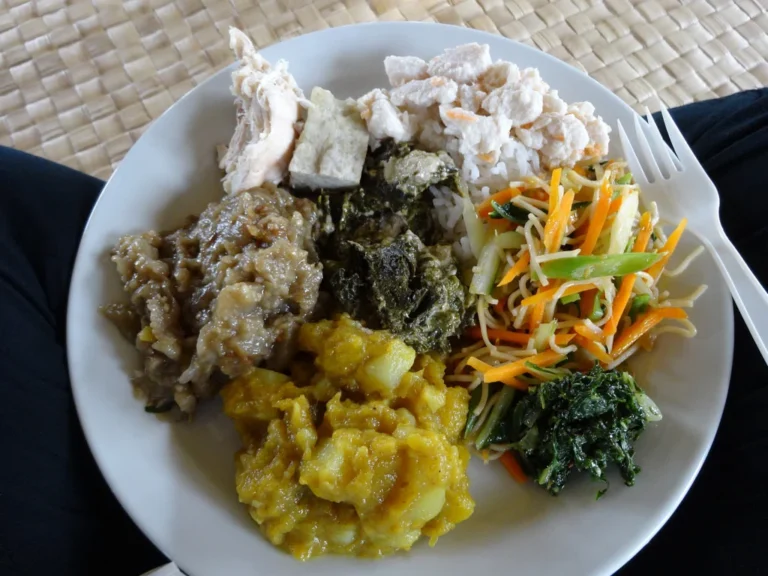Introduction: Fijian Culture and Food
Food plays a significant role in Fijian culture, serving as a symbol of unity, sharing, and hospitality. Food is central to Fijian social life and is seen as an essential aspect of Fijian identity. Fijians have a deep appreciation for traditional food and the rituals surrounding it, which reflect the history, beliefs, and social structures of the Fijian people.
Food as a Symbol of Unity and Sharing
Food is used as a symbol of unity and sharing in Fijian culture. Traditional Fijian meals are typically served in large communal settings, with everyone sharing from the same dishes. This reflects the Fijian values of togetherness, community, and sharing. It is also seen as a way to demonstrate respect and hospitality to others.
Traditional Fijian Cuisine and Ingredients
Traditional Fijian cuisine is diverse, with influences from Polynesia, Melanesia, and India. Some of the most common ingredients in Fijian cuisine include taro, cassava, yams, coconut, fish, and seafood. Traditional Fijian dishes include kokoda (raw fish in coconut cream), lovo (a feast cooked in an underground oven), and palusami (taro leaves stuffed with coconut cream and onion).
The Role of Feast (Lovo) in Celebrations
Lovo is an essential part of Fijian celebrations and social events. It is a traditional feast cooked in an underground oven, consisting of meat, fish, and vegetables wrapped in banana leaves and cooked over hot stones. Lovo is seen as a way to bring people together and celebrate important occasions such as weddings, birthdays, and festivals.
Food as a Spiritual Offering (Sevusevu)
In Fijian culture, food is also seen as a spiritual offering and is often presented as a sevusevu (a gift or offering). This is a way to show respect and honor to the recipient and is often accompanied by traditional rituals and ceremonies. Sevusevu is a vital part of Fijian customs, and visitors to Fiji are often expected to participate in the ritual.
The Importance of Food in Fijian Social Hierarchy
Food also plays an essential role in Fijian social hierarchy, with certain foods being reserved for specific occasions and classes of people. For example, kava (a traditional drink made from the root of the kava plant) is often reserved for chiefs and other high-ranking members of society. The preparation and serving of food are also highly structured, with specific etiquette and protocols.
The Impact of Modernization on Fijian Eating Habits
The Fijian diet has undergone significant changes in recent years due to modernization and globalization. Western fast food and processed foods have become more prevalent, and traditional Fijian foods have become less common. This has led to concerns about the impact of these changes on the health and well-being of the Fijian people.
Conclusion: The Enduring Significance of Fijian Food Culture
In conclusion, food plays a crucial role in Fijian culture, serving as a symbol of unity, sharing, and hospitality. Traditional Fijian cuisine and rituals reflect the history, beliefs, and social structures of the Fijian people. Despite the impact of modernization, the enduring significance of Fijian food culture remains strong, and efforts are being made to preserve and promote traditional practices.

